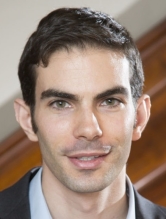The environmental bias of trade policy (Online event)
18 March 2021 3:00 pm CET
Joseph S. Shapiro, University of California
Venue
Online event via Zoom - See dial-in link below
Description
Dial-in link for this event:
https://zoom.us/j/91348797784?pwd=OGdwTlZkUitSRFNzSmplMFhhanVNdz09
The presentation is based on a paper with the same title.
Abstract:
This paper describes a new fact, then analyzes its causes and consequences: in most countries, import tariffs and non-tariff barriers are substantially lower on dirty than on clean industries, where an industry’s “dirtiness” is defined as its carbon dioxide (CO2) emissions per dollar of output. This difference in trade policy creates a global implicit subsidy to CO2 emissions in internationally traded goods and so contributes to climate change. This global implicit subsidy to CO2 emissions totals several hundred billion dollars annually. The greater protection of downstream industries, which are relatively clean, substantially accounts for this pattern. The downstream pattern can be explained by theories where industries lobby for low tariffs on their inputs but final consumers are poorly organized. A quantitative general equilibrium model suggests that if countries applied similar trade policies to clean and dirty goods, global CO2 emissions would decrease and global real income would change little.
The presentation, when available, will be posted online after the webinar.
Joseph S. Shapiro is Associate Professor at the University of California, Berkeley, in Agricultural & Resource Economics and the Department of Economics. He also serves as Associate Editor of the Journal of Political Economy, Co-Editor of the Journal of Public Economics, Research Associate at the National Bureau of Economic Research, and Research Associate at the Energy Institute at Haas. His research agenda focuses on three general questions: (1) How do international trade policy and environmental policy interact? (2) What are the costs, benefits, and incidence of water pollution and other environmental policy? (3) How important are the investments that people make to protect themselves against air pollution and climate change? Shapiro has received an Alfred P. Sloan Research Fellowship and Marshall Scholarship, and funding from the National Science Foundation and the Environmental Protection Agency. He was previously Assistant Professor in the Department of Economics at Yale. Shapiro holds a Ph.D. in economics from MIT, Masters degrees from Oxford and LSE, and a BA from Stanford.
Related papers:
Antras et al. AERPP 2012 "Measuring the Upstreamness..." https://www.aeaweb.org/articles?id=10.1257/aer.102.3.412
Cherniwchan, Copeland, and Taylor Annual Reviews 2017, "Trade and the Environment" https://www.annualreviews.org/doi/abs/10.1146/annurev-economics-063016-103756
Shapiro and Walker AER 2018, "Why is Pollution..." https://www.aeaweb.org/articles?id=10.1257/aer.20151272
Keywords: climate change, trade policy, carbon tariffs, global value chains, trade and the environment
JEL classification: Q50, Q56, F6, F13, F18, H23


